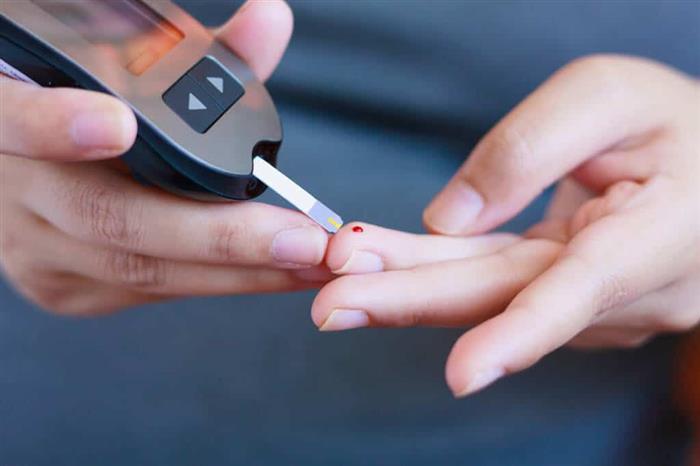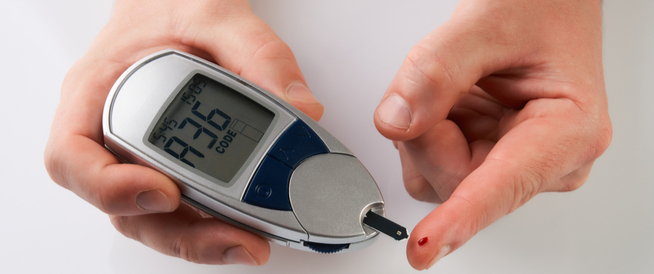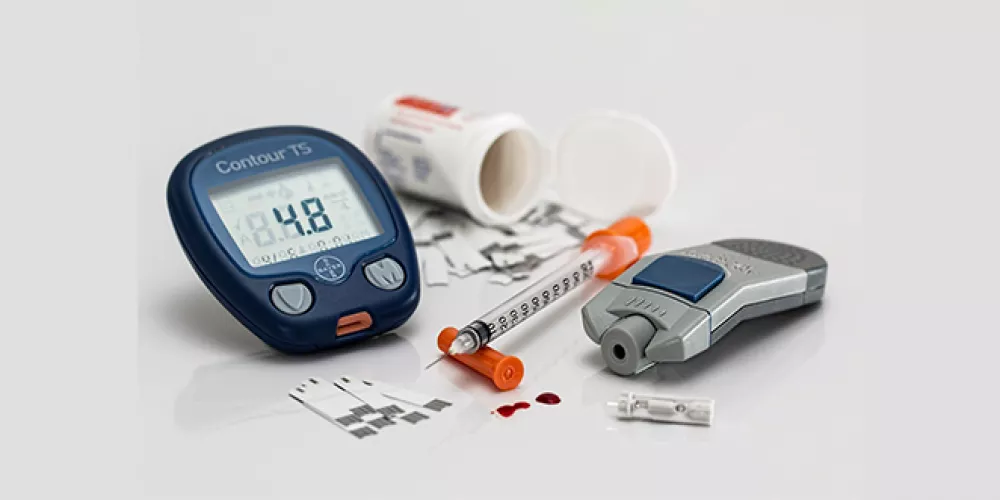Does hunger cause hypoglycemia?
Dr. Hossam Mowafy, Professor of Critical Situations at Kasr Al-Aini Faculty of Medicine, provided an important warning to diabetic patients against feeling extremely hungry, as this could be a symptom of a serious problem.
Feeling extremely hungry, despite eating meals, is an indication of low blood sugar. Therefore, doctors recommend eating between 15 to 20 grams of carbohydrates, such as fruit berries or fruit juice, to quickly treat this problem.
Some people want to know if there is a relationship between hunger and blood sugar levels. In general, feeling hungry alone is not the main reason for a drop in blood sugar levels, as our bodies work to maintain the blood sugar level within a specific range throughout the day. But in some cases, the body feels very hungry when the blood sugar level is low, and hypoglycemia is also associated with other symptoms such as frequent urination.
If blood sugar levels rise, this can be a reason to feel very hungry. Therefore, it is preferable to live a healthy and balanced lifestyle and avoid eating foods rich in sugar to keep blood sugar levels stable.
Symptoms of low blood sugar worsen if the patient is not treated appropriately. Some of these symptoms include pale skin, dizziness, rapid heartbeat, excessive feeling of hunger, and tremors. These symptoms can become more severe if the problem is not treated effectively.
Causes of low blood sugar for those who do not have diabetes?
- Performing intense physical activity: Exercising intensely or doing very intense physical activities may lead to low blood sugar. This happens because the muscular system needs the energy stored in the sugar, and therefore it is consumed faster, resulting in a drop in the sugar level.
- Eating an excessive meal: When eating a long-term or excessive meal, it may cause an increase in insulin in the body. This happens as a result of the excess amount of sugar that the body takes in, and when there is a sudden drop in the sugar level after that, the person may feel dizzy or tired.
- Skipping meals: Not eating meals regularly or delaying eating meals can affect the blood sugar level. Long waits between meals may lead to low blood sugar levels and feelings of fatigue and weakness.
- Effect of the drug: Low blood sugar may occur as a result of the effect of some medications that a person takes, such as insulin, sulfonylureas, and meglitinide. Therefore, it may be important to see your doctor if you frequently experience low blood sugar.

How do I know that my blood sugar is low without a device?
- Listening to the body: A person with low blood sugar may feel symptoms such as dizziness, headache, extreme fatigue, excessive sleepiness, cold sweats, trembling, and anxiety. If these symptoms increase or appear suddenly, you may have low blood sugar.
- Physical examination: There may be some physical signs that can indicate low blood sugar, such as pale skin, slips in speech, and blurry vision.
- Relying on the interaction of others: If you suspect low blood sugar, a person can ask others who know their health condition if they feel symptoms of low blood sugar appearing.
If my blood sugar is low, how do I raise it?
First, a person with diabetes should consult his medical team, whether it is a family doctor or a diabetologist, because they are more qualified to provide appropriate advice tailored to his health condition.
Secondly, when there are symptoms of severe hypoglycemia, the patient should eat a quickly absorbed amount of sugar immediately. These include fast food sources such as sweetened juices, sweet sugars, or sweetened gum.
Third, if the condition deteriorates and the patient does not respond to the above treatments, the patient should immediately seek medical assistance by calling the local emergency number. This is necessary to get immediate treatment in hospital and avoid serious health problems.
Finally, after the blood sugar level has been restored to normal limits, the patient must follow the advice of the medical team and prepare a regular and balanced nutritional schedule that includes eating foods rich in fiber, minerals and vitamins, in addition to exercising regularly.

What is more dangerous, high or low blood sugar, and why?
When it comes to diabetes, high blood sugar is the most dangerous and harmful to your health. This is due to several important reasons.
First, high blood sugar can lead to serious health complications. When your blood sugar level increases for a long time and repeatedly, it can cause damage to your nerves, blood vessels, kidneys, eyes and feet. Therefore, serious health problems can occur, such as poor eyesight, kidney problems, restricted blood flow to the organs, the formation of wounds that are difficult to heal, and the occurrence of blood clots.
Secondly, high blood sugar can affect the process of insulin secretion. Insulin works to lower the blood sugar level, but when there is a persistently high blood sugar level, the pancreas may tire of the insulin secreting it. In the long term, this may lead to decreased or ineffective insulin secretion. This means that the body will not be able to use sugar properly, requiring reliance on external sources to compensate, such as insulin injections.
On the other hand, when the blood sugar level drops sharply, it can also be dangerous. This condition is known as hypoglycemia or severe hypoglycemia. If hypoglycemia occurs suddenly and is not treated properly, it can lead to unconsciousness and serious health problems including stroke or heart attack.
When does a person enter a diabetic coma?
Studies have found that diabetic coma usually occurs when the blood sugar level is higher than 600 mg/dL, and this condition is the result of a rapid and sudden rise in blood sugar levels. This may be accompanied by symptoms such as extreme thirst, frequent urination, feeling tired and weak, and shallow breathing.
When a person reaches a diabetic coma, he loses consciousness completely and the body's vital functions stop working properly. If this condition is not treated quickly, it can be fatal.
When a person feels symptoms of a diabetic coma, doctors advise him to follow the following steps:
- Fast sugar intake: Eat a quick source of sugar such as fruit juice or regular soft drinks.
- Obtaining urgent medical care: The person should seek medical care immediately, as he needs immediate medical treatment to deal with a diabetic coma.
There must be precautionary measures to prevent a diabetic coma, including:
- Continuous monitoring of blood sugar level.
- Follow a healthy and balanced diet.
- Do physical activity on a regular basis.
- Follow the correct dosage of prescribed medications.
What is the treatment for sudden hypoglycemia?
In order to treat sudden hypoglycemia, there are several measures that must be taken quickly to restore the sugar level to the normal range. Here are some steps that can be taken:
- Eating sugar quickly: A person affected by a sudden drop is advised to quickly drink a drink or meal that contains sugar, such as fruit juice or candy, to compensate for the lack of sugar in the body.
- Eat a balanced meal: After restoring the sugar level to an acceptable level, the person should eat a meal rich in complex carbohydrates and protein to ensure the stability of the blood sugar level.
- Exercise with caution: If the sudden decline is caused by exercise, it is recommended to reduce the intensity of the exercise and increase sugar intake before starting strenuous exercises.
- Obtaining medical treatment: In severe or persistent cases of sudden hypoglycemia, the person must visit a doctor to evaluate the condition and receive appropriate treatment for hypoglycemia.
- Preventing sudden hypoglycemia: People who have problems controlling blood sugar levels should follow a balanced and regular diet, in addition to exercising regularly and drinking fluids in sufficient quantities.
When is sugar low after eating?
This is an important question for many who suffer from diabetes or who are concerned about the level of sugar in their body in general. Low blood sugar can be dangerous and lead to serious health complications, so knowing when low blood sugar can occur after eating is important for maintaining health and wellness.
The period of onset of low blood sugar after eating depends on several factors, including the type of food eaten and the amount of calories it contains. Experts may indicate that you should usually wait between two to four hours after eating to know the level of sugar in the body.
However, it should be noted that the effect of foods on the body's sugar level varies from person to person based on individual factors. For example, foods rich in simple carbohydrates such as sweets and soft drinks can increase the likelihood of low blood sugar occurring more quickly than other foods.
When abnormally low blood sugar occurs after eating, a person should consult his doctor and check his blood sugar level. In cases of diabetes, the doctor may rely on the results of blood sugar tests to determine the appropriate doses of prescribed diabetic treatments, and in some cases it may be recommended to change the eating regimen as well.
It is important for people with diabetes and those who experience low blood sugar after eating to know the signs and symptoms that accompany low blood sugar, such as dizziness, weakness, and nausea. If any of these symptoms occur, it is recommended to drink a quick source of sugar such as fruit juice or a regular soft drink to increase the blood sugar level immediately. If symptoms persist or worsen, seek medical help immediately.

Is hypoglycemia for non-diabetics?
The study indicates that about 1 in 3 people suffering from hypoglycemia had unexpected hypoglycemia, which is much higher than previously reported. This means that low blood sugar is not specific to people with diabetes, but it may happen to anyone.
Low blood sugar may cause a number of symptoms that must be treated immediately. These common symptoms include: fatigue, dizziness, headache, nervousness, excessive sweating, palpitations, and in some cases it may lead to loss of consciousness. Therefore, people suffering from these symptoms should seek quick treatment to avoid serious complications.
It is necessary to maintain blood sugar levels within normal and permissible limits, whether for people with diabetes or others. Balanced nutrition and regular physical activity may help maintain the correct blood sugar level. If a person feels any strange symptoms, he should consult a doctor to diagnose and treat the problem immediately.
Various sugars found in daily meals and drinks may be responsible for a sudden drop in blood sugar level. So, it may be wise to stay away from foods high in sugar and unhealthy nutrition. It is best to eat healthy meals that contain complex carbohydrates, proteins and healthy fats.
How dangerous is low blood sugar?
Researchers have found that there are several factors that can lead to this dangerous drop in blood sugar, including severe changes in eating and an unhealthy lifestyle, in addition to excessive medication associated with diabetes treatment.
It is known that a sharp drop in blood sugar can lead to serious health problems, such as dizziness, fainting, convulsions, and difficulty breathing. Continuing to ignore these symptoms may lead to the risk of death.
Fortunately, this dangerous drop in blood sugar can be prevented by following a healthy, balanced diet and exercising regularly, in addition to taking prescribed medications correctly according to the recommendations of the treating physician.
The American Diabetes Association recommends that the blood sugar level be tested regularly and that it be maintained in balance, and if any abnormal symptoms are felt, a doctor should be consulted immediately.
Does hypoglycemia occur during sleep?
When a person with diabetes' blood sugar level drops during sleep, they may experience negative effects on their health. He may experience nausea, fatigue, sweating, headache, hand tremors, and increased urination at night. A person with diabetes may wake up during the night as a result of these symptoms and feel very hungry.
To protect their health and reduce blood sugar drops during sleep, people with diabetes should take some preventive steps. First, they should monitor their blood sugar level regularly and make sure it is in the appropriate range. Eating a healthy, balanced diet and getting regular physical activity can help them keep their blood sugar level stable.
In addition, doctors may advise adjusting the dosage or time of taking the medication for people with diabetes who face the problem of hypoglycemia during sleep. They may be instructed to eat a complex carbohydrate snack before bed to compensate for any possible drop in blood sugar.
